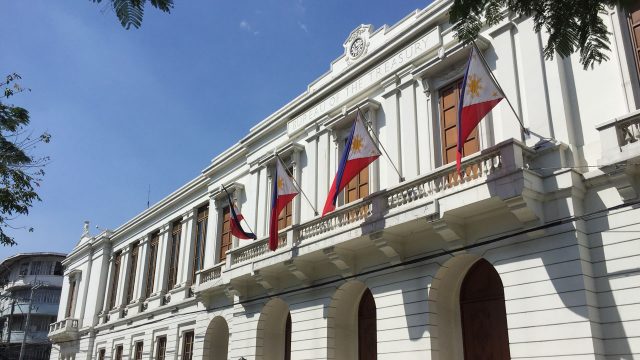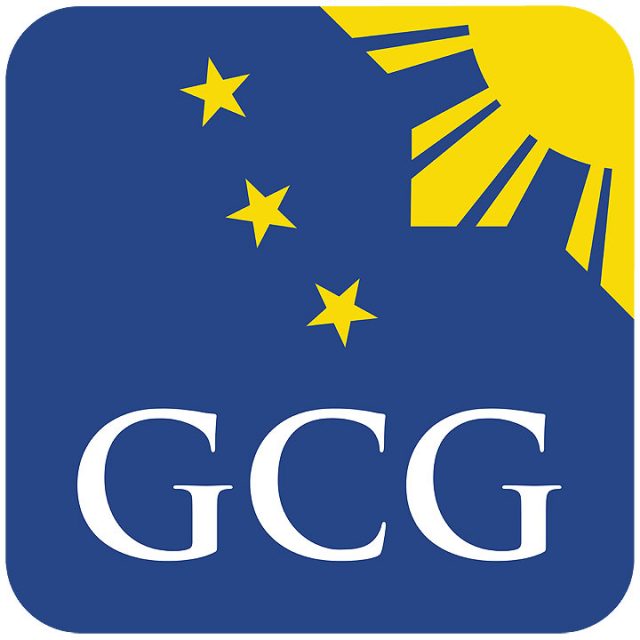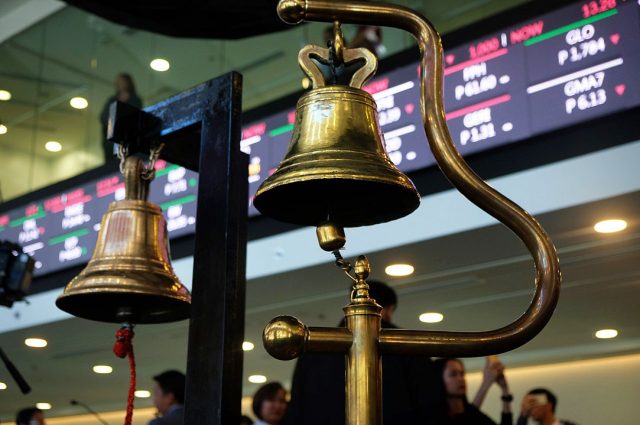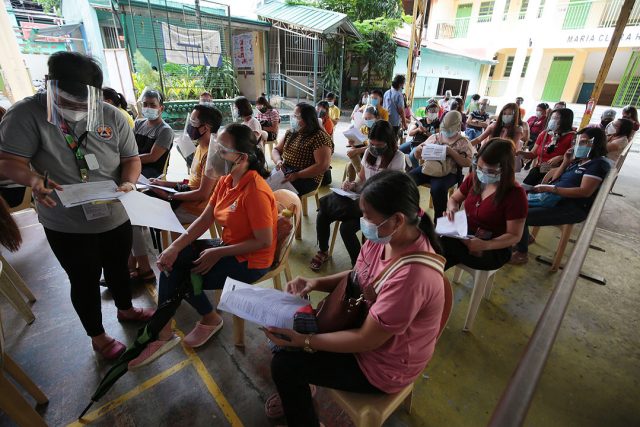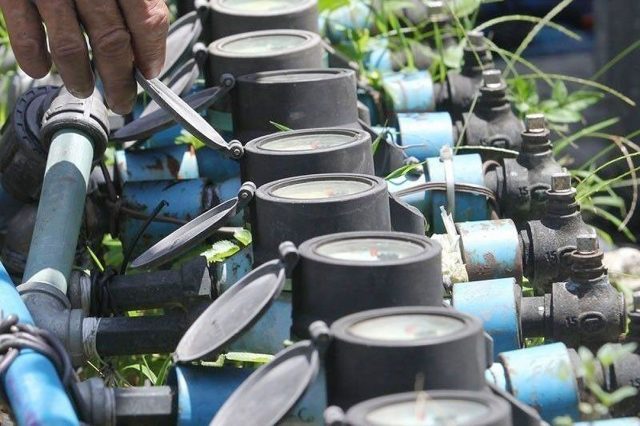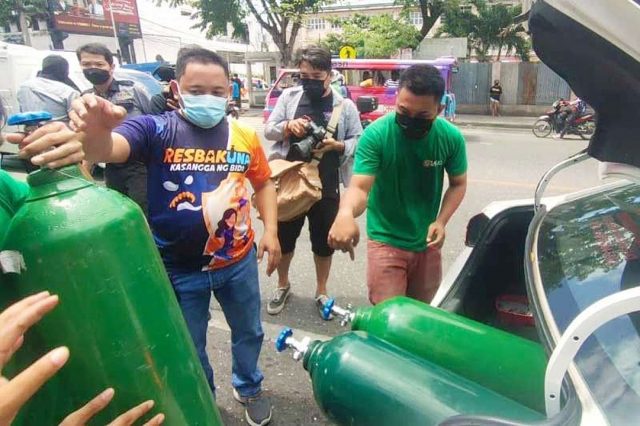By Kyle Aristophere T. Atienza, Reporter
and Alyssa Nicole O. Tan
Philippine President Rodrigo R. Duterte has defended his former economic adviser Michael Yang, who had been linked to the illegal drug trade, after the Chinese businessman was implicated in another controversy involving the Budget department’s procurement of overpriced medical supplies.
Mr. Yang is back in the headlines after Senator Richard J. Gordon played a Radio Television Malacañang video in a Senate hearing last week showing him introducing officials of Taiwan-based Pharmally International to Mr. Duterte in March 2017.
Pharmally’s local subsidiary, Pharmally Pharmaceutical Corp., bagged about P8.68 billion worth of pandemic-related medical supply contracts last year.
“Michael Yang has been in business for 20 years, he started in Davao,” Mr. Duterte said in taped Cabinet meeting. “Hindi iyan ang Instik na kinukunan ko ng pera (That is not the Chinese from whom I get money).”
The President said the Davao-based businessman had been present in his official meetings with former Chinese Ambassador Zhao Jianhua.
“Bakit ako magduda? Bakit ako magsabi na drug lord siya? (Why would I have doubts? Why would I say he’s a drug lord)?” the President asked, adding that the Chinese diplomat stayed at Mr. Yang’s residence when he came to Davao.
In March 2019, former police official Eduardo P. Acierto accused the President and his former police chief, now Senator Ronald M. Dela Rosa, of blocking a potential investigation into Mr. Yang’s alleged involvement in the country’s illegal drug trade. In the same month, the Presidential Palace announced that Mr. Yang was no longer economic adviser of the President since his contract expired in Dec. 2018.
“Kaibigan ako ng China, sasabihin sa akin ang totoo (I am a friend of China, they would tell me the truth),” Mr. Duterte said, noting that the Chinese government would not allow Mr. Yang to enter the Philippines if he was involved in the illegal drug trade.
In a public speech last year, the President said Mr. Yang was first introduced to him in 1999 by a Maranao tribe leader named Randy Usman.
Senators have questioned why Pharmally, which was registered with the Securities and Exchange of Commission in 2019 with a paid-up capital of only P625,000, was awarded government contracts worth billions when it had yet to establish the required track record.
Senator María Imelda Josefa “Imee” R. Marcos earlier said leaders of Pharmally “have active criminal cases in Taiwan” for alleged manipulation of stocks.
In the same Cabinet meeting, the President also defended Chinese suppliers getting pandemic contracts, saying he was in touch with Chinese business people to secure investments for the country.
“I thought we are inviting investors? That is why I went to China several times, for them to come and help us,” he said.
The President also admitted that he had instructed the Health department to skip public bidding for the procurement of personal protective equipment (PPE) during the onset of the pandemic last year.
“I was the one who instructed (Health Secretary Francisco T.) Duque. I want it done immediately,” he said in mixed English and Filipino.
PERSONAL ATTACKS
Meanwhile, the tough-talking leader waged personal attacks against Senator Richard J. Gordon, Sr. and other senators for grilling former Budget undersecretary Christopher Lloyd Lao, who signed the Pharmally deals, in previous senate hearings.
The President also accused Mr. Gordon of ‘Sinophobia’ for focusing on Mr. Yang’s links to Pharmally.
State auditors, in their 2020 audit reports released recently, flagged several government agencies for irregularities and deficiencies in their handling of pandemic funds. The Department of Health had one of the highest funds in question.
Mr. Gordon, reacting to Mr. Duterte’s tirades, said the President should question those involved in the controversial deals and not the Commission on Audit nor the Senate panel.
“I don’t understand our President, he said he was against corruption,” Mr. Gordon said. “You cannot hide that there is a problem. How can you ignore that? Why are you covering your eyes and blaming others?”
The senator also took a jab at the President saying he “forgives” him for the insults because personal attacks are only done by the weak.
Mr. Gordon, who chairs the Blue Ribbon Committee which is conducting the probe, said Senator Christopher Lawrence T. Go may be the “common denominator” among “dubious characters” involved in the medical supply deals.
Mr. Gordon said he did not want to investigate a colleague, but if evidence points to Mr. Go, then he will do so. “There may be some explanations to be made by Senator Bong Go.”
In a privilege speech on Tuesday, Mr. Go, a long-time aide of the President, denied any involvement in the deals nor working closely with the personalities being questioned.
He reiterated a previous statement that Mr. Lao “did not directly report to me nor did he ever serve as my aide.”
Senator Panfilo M. Lacson, who was also attacked by the President, said the country’s leader seems to be in “panic mode.”
“The video showing Michael Yang, a Chinese national who had a signed contract as a presidential consultant, receiving a one-peso-a-year remuneration from the government and very casually introducing high officials of the controversial Pharmally Corp. is telling to say the least,” said Mr. Lacson in a statement on Tuesday.
Senate President Vicente C. Sotto III, in a separate statement, said negligent government officials and employees must be made accountable to stop “sloppy jobs” that waste public funds.
“We can’t just sit back and watch the meltdown in government services. We need to hold liable those who have been failing in their jobs,” Mr. Sotto said.
PPE PURCHASE IN 2022
Meanwhile, Senate President Pro Tempore Ralph G. Recto on Tuesday said the Health department should publish the specifications and volume of PPEs to be purchased in 2022 to draw in Filipino suppliers.
“Make public the details. As they say, sunlight is the best disinfectant,” said Mr. Recto in a statement. “There is a capable and competent local PPE manufacturing sector whose products, if patronized by their own government, will save jobs and save lives.”
The DoH is planning to buy 758,700 sets of PPE at an average cost of P1,079 each, said Mr. Recto, citing the 2022 proposed national budget submitted to Congress.
“The Philippine-made medical-grade masks are being exported. What is loved by other countries should not be officially snubbed here,” he said.
Mr. Recto also urged the DoH to “shun the trend” of designating the Department of Budget and Management’s Procurement Service or the Philippine International Trading Corp. to do the procurement for them, especially since health authorities know best the quality needed to keep medical workers safe.
The senator also note that the 2021 General Appropriations Act and the 2022 New Expenditures Program have a section allowing early procurement activities for anticipated projects, which will help lessen delays.

